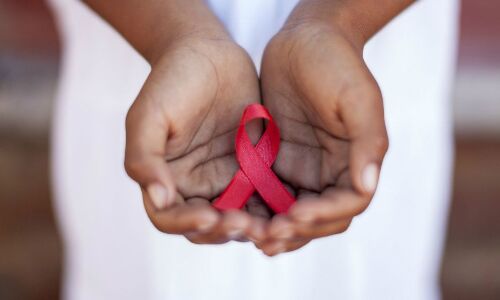A herculean task lies ahead for India to end AIDS by 2030
A herculean task lies ahead for India to end AIDS by 2030
By adopting the UN Sustainable Development Goals (SDGs), governments of over 190 nations, including India, have pledged to end the dreaded disease AIDS by the year 2030. India has also promised to eliminate this disease by 2030 as per the National Health Policy, 2017. For achieving this goal, the Indian Parliament, way back in 2017, had passed the HIV and AIDS (Prevention and Control) Bill which was primarily aimed at ensuring equal rights while seeking treatment, education and job by people living with HIV.
The bill stipulated penal provisions for any discrimination practised against a person with HIV/AIDS and breach of confidentiality. It sought to prevent and control the spread of HIV and AIDS, and to prohibit discrimination against persons with HIV and AIDS. The bill listed various grounds on which discrimination against HIV positive persons and those living with them is prohibited. These include the denial, termination, discontinuation or unfair treatment with regard to employment; educational establishments; health care services; residing or renting property; standing for public or private office; and provision of insurance (unless based on actuarial studies). The requirement for HIV testing as a pre-requisite for obtaining employment or accessing health care or education was also prohibited. The protection mandated in the Bill extends to the fields of employment, healthcare services, educational services, public facilities, property rights, holding public office, and insurance.
The Bill also bears a lot of significance in terms of giving protection to such people from specific acts of discrimination by the state, or any other person. The Bill makes anti-retroviral treatment a legal right for all HIV/AIDS patients. It has also adopted “test and treat” policy which means any person testing positive will be entitled for free treatment by the state and central government. Earlier, this was restricted by a CD4 count rate. The bill also provided for confidentiality of HIV-related information and makes it necessary to get informed consent for undertaking HIV tests, medical treatment and research.
Unfortunately, even though it is more than five years since the Bill was passed by the Indian Parliament, the law is yet to be fully implemented in the country. Forty years since the first AIDS cases were reported in the world, and 35 years since the first case was reported in India, HIV still threatens one and all. Today, the world is off track from delivering on the shared commitment to end AIDS by 2030 not because of a lack of knowledge or tools to beat AIDS, but because of structural inequalities that obstruct proven solutions to HIV prevention and treatment. It is true that the Covid-19 pandemic has widened inequalities, claimed lives, and disrupted HIV, TB, and other health services around the world. And India was no exception.
It has affected the most vulnerable, including people living with, at risk of and affected by HIV. But, the organizations like the AIDS Society of India had worked with the Indian government when lockdown got clamped in March 2020 to ensure uninterrupted supply of lifesaving antiretroviral therapy in public and private healthcare sectors. Government’s efforts to reduce inequalities and provide social protection has and will further facilitate the uptake of HIV, TB, and other essential health services. It improves adherence to HIV and TB treatment, reduces HIV risk and mitigates the social and economic impacts of HIV and Covid-19.
As experts opine, stamping out HIV-related stigma and discrimination is very much essential to speed progress towards end AIDS goals and targets. Social and financial protection, such as insurance, is also important. Every person living with HIV must be aware of his/her status, receiving lifesaving antiretroviral therapy, and remain virally suppressed. Failing on these essential targets will also fail in ending AIDS. Sure, the country can end AIDS now as it has the science-backed tools and approaches to accelerate progress on these goals. There should be coordinated and integrated health responses to accelerate progress to end AIDS in the country by 2030. Even five years after the HIV/AIDS Act 2017 is in place, there are no appointments of state ombudsman; which is a mandatory provision in the Act.
More importantly, the country is yet to see a single prosecution under the provisions of this Act and it in no way connotes those violations have not happened. In fact, there is an urgent need to create awareness about the existence of the Act and its provisions. Economic, social, cultural and legal inequalities must be ended as a matter of urgency if the country to end AIDS by 2030. But ending inequalities requires transformative change. Political, economic and social policies need to protect the rights of everyone and pay attention to the needs of disadvantaged and marginalized communities. Obviously, the government has set an ambitious target. To make that dream come true, a herculean task lies ahead.
(The author is freelance journalist with varied experience in different fields)

